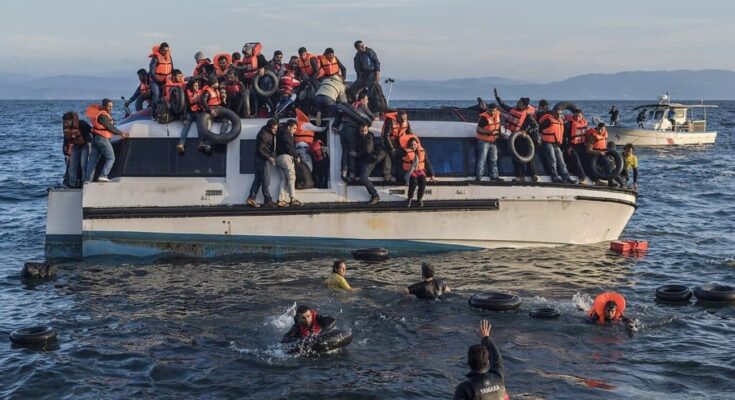
Germany’s decision to temporarily tighten controls on its land borders is putting the migration issue back on the EU’s agenda and was criticized by Greece and Poland.
The decision could create a “domino” effect throughout Europe which in practice would mean that migrants refused entry could return to the countries from where they originally entered the EU, namely Greece, Poland and Italy.
Berlin said earlier in the week that controls in place at its border with Austria since 2015, and since last year with Poland, the Czech Republic and Switzerland, would be extended next week to France, Luxembourg, Belgium, the Netherlands and Denmark.
The move would curb migration and “protect against the acute dangers posed by Islamist terrorism and serious crime,” said Nancy Faeser, the interior minister.
Europe’s passport-free Schengen area, which was created in 1985 and now includes 25 of the 27 EU member states plus four others including Switzerland and Norway, allows free movement between them all without border controls.
Temporary checks are allowed in emergencies and exceptional circumstances to avert specific threats to internal security or public policy, and have typically been imposed after terror attacks, for major sports events and during the pandemic.
Increasingly, however, European governments, often under pressure from far-right rhetoric on immigration, have reimposed checks without the justification of concrete and specific threats, The Guardian says.
Germany’s AfD earlier this month became the first far-right party since World War Two to win a state election, in Thuringia, after campaigning heavily on the issue of migration.
Greece and Poland react to Germany’s decision on migration
Greek PM Kyriakos Mitsotakis said from Vienna on Wednesday that it “would not be right to move towards an ad hoc logic of Schengen exemptions”.
Athens fears that uncoordinated initiatives by individual European countries can lead to migrants, even those with asylum status, being stranded in first-host countries, such as Greece.
Mitsotakis stated that Greece cannot be expected to bear an unfairly large burden due to its position at the EU’s external borders. He stressed that European support for managing migrants arriving in Greece must continue and current resources may not be sufficient or guaranteed for the future.
Migrants rush to Germany because of the social welfare policy that acts as a magnet for those entering Europe.
The Greek PM noted that it is not Greece’s role to dictate the social welfare policies of other member states, but he stressed it would be unjust to expect Greece, which has recently emerged from an unprecedented economic crisis, to offer a more favorable social protection framework for refugees than for Greek citizens.
“What a country like Greece certainly cannot accept is to shoulder a disproportionately large burden simply because of its geographical specificity, because it is located on the external borders of the European Union,” he added.
Poland which has been facing what it says is a migrant crisis orchestrated by Belarus and Russia on its eastern border since 2021, also reacted strongly to Germany’s decision.
“Such actions are unacceptable from the Polish point of view,” Tusk told a meeting of Polish ambassadors in Warsaw.
“Today we need full support from Germany and the entire EU when it comes to help in organizing, financing, arming the eastern border, also in the context of illegal migration.”
He said that what Poland needed was not tighter controls on its border with Germany, but more engagement from Berlin and others in securing the EU’s external border.
Related: European Parliament Approves Migration Policy Reform



